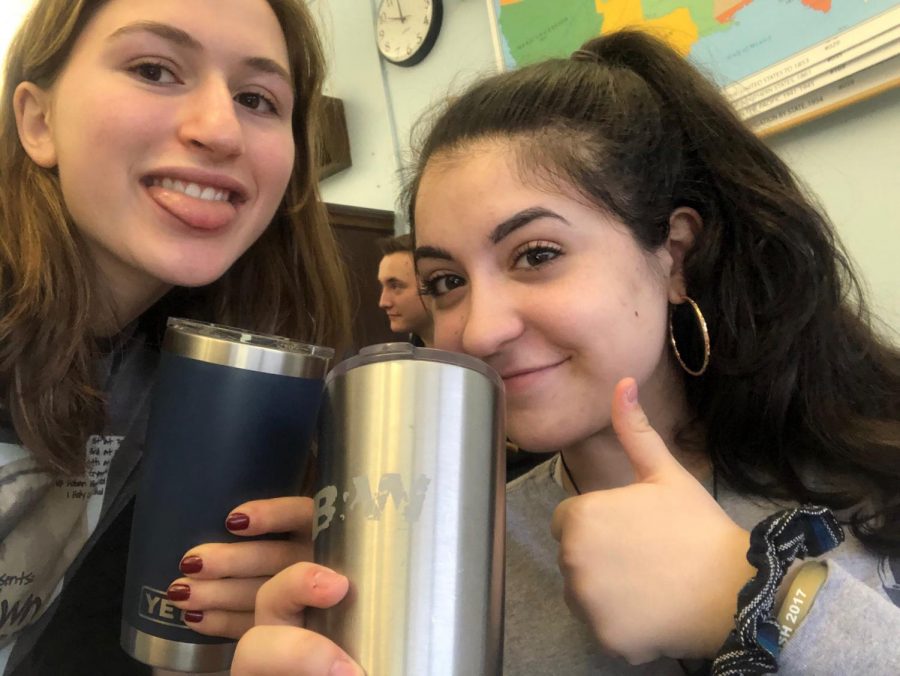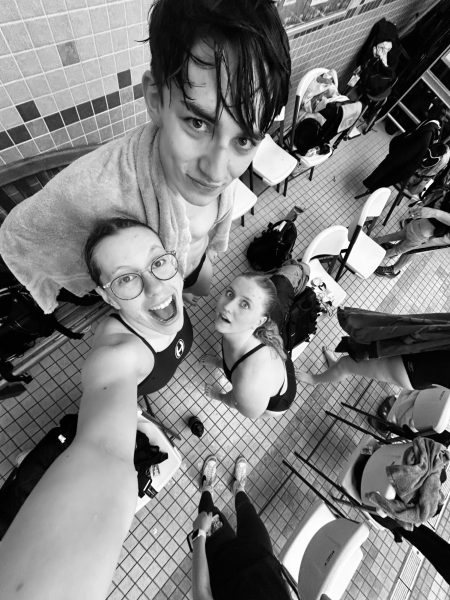Sleep deprivation as a metaphor
High school: the place where dreams go to die, Netflix works as life support, and sleep is more mythical than a useful career aptitude test.
As we near the end of the third quarter and the entire school balances on the edge of a senior landslide, the number of travel mugs full of coffee has grown and the collective amount of sleep has shrunk.
Ironically, wellness week, with its drug and abuse-centric message, failed to address what’s actually making teenagers unwell: exhaustion.
Our teachers seem to see sleep deprivation as a metaphor; they think that we’re lazy or bored, weak or high. They act like complaints are just attempts to get out of tests or homework, like we aren’t really suffering from this epidemic.
Like all of this can be fixed with better time management and a 5 Hour Energy.
It’s not so.
A friend of mine commented on my sleep schedule the other day, after hearing that I went to bed at midnight and got up at 5:30: “You know, sleep deprivation heightens your chances of developing Alzheimer’s.”
According to Johns Hopkins Medical Center, that’s only one of the many illnesses that sleep deprivation causes.
In fact, researchers believe that the chances of developing the most common mental illnesses plaguing high school and college students—depression and anxiety—increase just as sleep decreases. With the ever-growing time commitment of high school comes an ever-growing rate of diagnosis for these debilitating illnesses.
According to one 2013 study, the average student has an estimated three and a half hours of homework (excluding studying) and two hours of extracurricular activities each night, meaning that they have roughly 10 hours for eating, sleeping and studying. However, as colleges become more competitive and excurriculars make or break applications, this schedule stops being the norm and starts being an unrealistic baseline.
Ask most kids, and they’ll tell you that they spend more time in Hoban’s hallowed halls than they do in their own homes. Sports or Project Hope or theatre or whatever else they do consumes their lives, and eats away at their time.
Time that should be spent sleeping.
But what’s being done to combat this rampant sleep deprivation issue?
Short answer: nothing.
While Hoban spends hours and dollars on drug testing for an isolated issue and prints out body-positive posters, they look past the actual problem.
Sleep deprivation triggers higher hunger levels and lower appetite control, which aid in creating the unhealthy relationship with food that many students struggle with. And, as sleep deprivation increases the risk of developing depression, it also increases the risk of developing the self-medicating tendencies that encourage drug use in students.
As much as we’d like to preach about adderall abuse, there’s only one explanation for its growing influence: lack of sleep leading to lack of actual focus. ADHD medication counteracts this without the shakiness of caffeine, or the GPA-busting side effects of actually sleeping.
We continue to push through headaches and cry violently in the bathroom because I was up until three and I still got a C on that test, but the end seems nowhere in sight. While we milk those two hours of sleep for all they’re worth, all we can do is hope that one day, someone will acknowledge why we’re all breaking down.
Sleep deprivation isn’t a metaphor for laziness or addiction. Our phones and friends aren’t to blame. It’s our hours of homework, our desires to get into good schools and good jobs and good lives.
Sleep deprivation is a real problem. And it’s about time we actually try to fix it.


